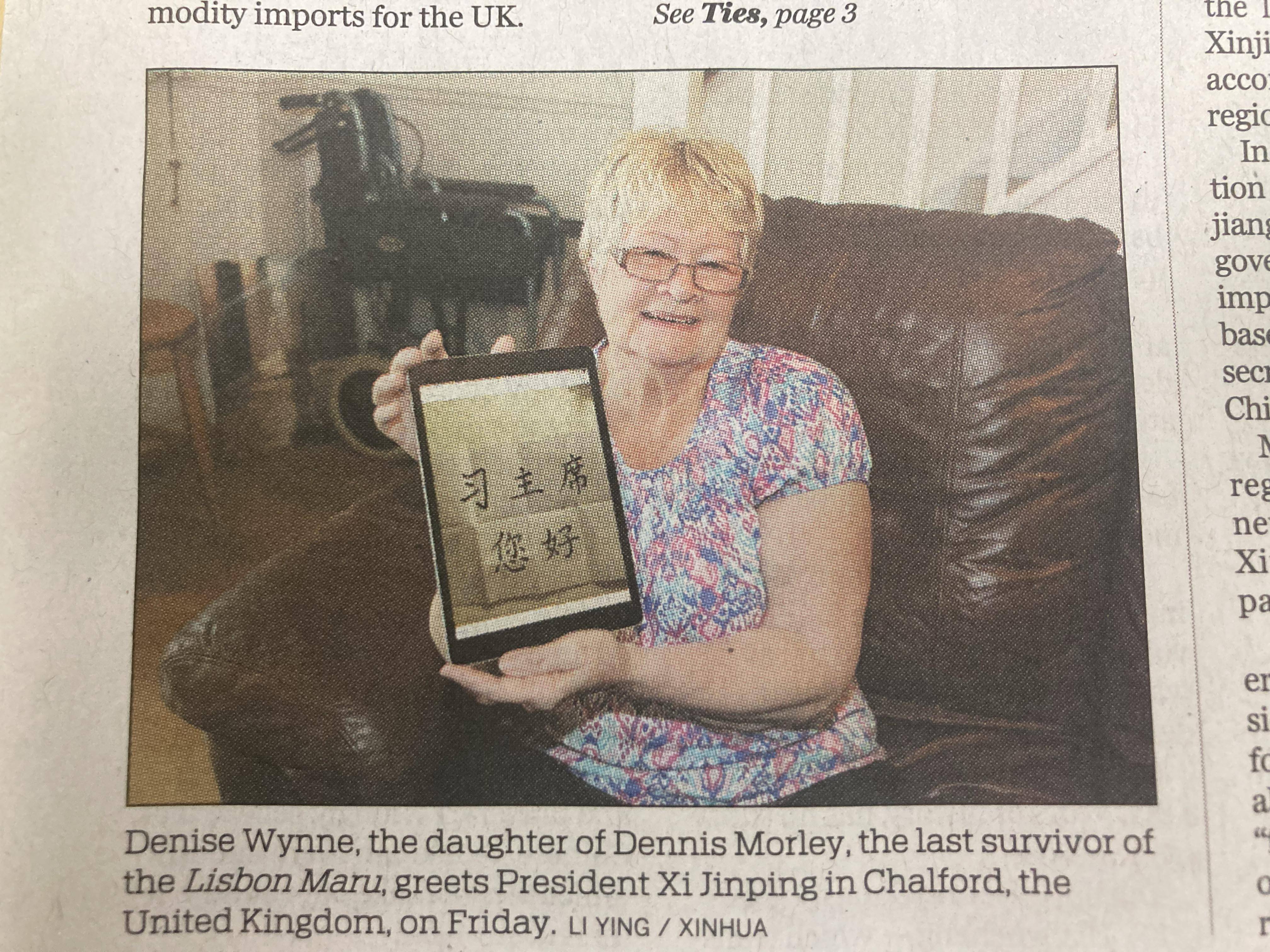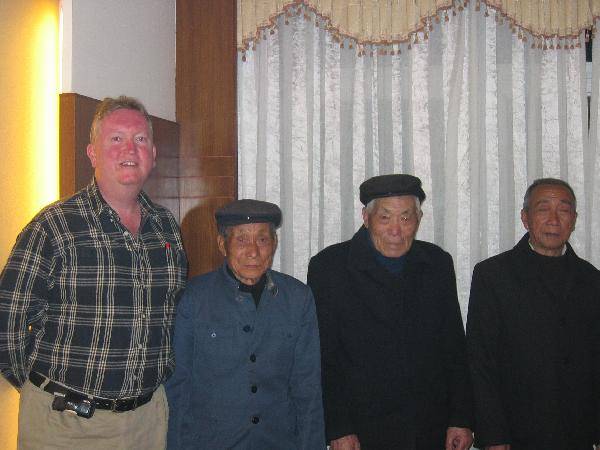UK-China exchange focuses on story said to contain ‘very worst and very best of humanity’
A WOMAN IN THE UK wrote to Chinese leader Xi Jinping and received a personal reply, it was revealed today—and their exchange revived memories of one of the most dramatic events of the shared history of the two nations.
Denise Wynne wrote to the President of China to pass on a message of thanks for the rescue of her Hong Kong-based father during the notorious sinking of the Lisbon Maru during World War II. Her father “said he owed his life to the Chinese fishermen,” she said.
Chinese leader Xi replied with a personal letter to Denise saying that he knew that portion of history well, and had referred to it during his official visit to the UK in 2015, Chinese media reported today.

The historical incident to which they referred is shocking, even by the standards of the records of the Japanese invasion. Major Brian Finch, a historian, said: “The story contains the very worst and the very best of humanity.”

PRISONER TRANSPORT
In the autumn of 1942, the Japanese put more than a thousand British and Canadian prisoners of war captured in Hong Kong on a ship to take them to Japan. The Japanese soldiers on board put the prisoners in “appalling conditions” in the bottom of the hold, where they lay in the dark, sick, miserable, and dying.
They had no idea their situation could get any worse – but it did.
On October 1, 1942, the USS Grouper, an American submarine, torpedoed the ship. The U.S. had no intelligence about who was on board and assumed it was a Japanese troop carrier. The Lisbon Maru was badly damaged and slowly started to sink.
The Japanese secured the hatches so that the prisoners could not escape, and then evacuated their own troops off the ship.
LOCKED IN A SINKING SHIP
After 24 hours, some of the prisoners of war realized they had been abandoned, locked in a sinking ship, and desperately started finding ways to escape.
A number were able to break through the hatches and get to the surface. But most could not. In a hold containing members of the Royal Artillery, the ladder broke, leaving them with no way out. As they realized their fate, they started singing, their voices echoing upwards. They sang: It’s a Long Way to Tipperary, a cheerful marching song about men looking forward to returning home.

Several hundred prisoners of war managed to climb to the upper levels. As they emerged on deck, a few remaining Japanese soldiers shot at them. When the prisoners jumped into the water, the Japanese from nearby boats used machines guns to spray bullets at them.
The ship sank.
The surviving Hong Kong soldiers in the water despaired, with no hope of rescue. They were floating in the East China Sea, a long distance from any land, being picked off by gunmen from Japanese warships.
UNEXPECTED RESCUE
Watching from a distance were Chinese fishermen. Shocked by what they saw, they quickly boats into the area and started picking up the survivors. They collected several hundred soldiers, pulling them from the water and tending to their wounds.
Moved by the scene, some Japanese soldiers also started rescuing men from the ocean.
The fishermen eventually picked 384 men and got them back to land. One was Dennis Morley, aged 22, (below) who lived to old age and became known as the last survivor of the Lisbon Maru tragedy.

More than 800 men lost their lives, the British government later calculated. The Japanese government denied their part in the tragedy, but enough witnesses survived to report what had really happened.
SELF-SACRIFICE
Historian Finch said: “The amazing self-sacrifice, both from the Chinese fisherman, and also from some of the prisoners helping others, was absolutely outstanding and unbelievable, as was the cruelty of the fascists.”

China and the UK this year celebrate 50 years of ambassador level friendship. “China-UK annual trade in commodities has increased from US$300 million in 1972 to US$100 billion last year, and China has become the largest source of commodity imports for the UK,” the China Daily said in a report about the rescue and the exchange of letters.
Fang Li, a Chinese filmmaker, has been hoping since 2018 to make a movie about the incident. He placed an advertisement in the Times of London (below) to locate the survivors’ families. He also located the wreckage of the ship at the bottom of the sea.

Denise Wynne, of Chalford, Gloucestershire, said she hoped on day to travel to China to meet the children of the fishermen and celebrate the friendship between the two countries.
Images in this piece are from historical sources. Tony Banham image from his website on the incident.
